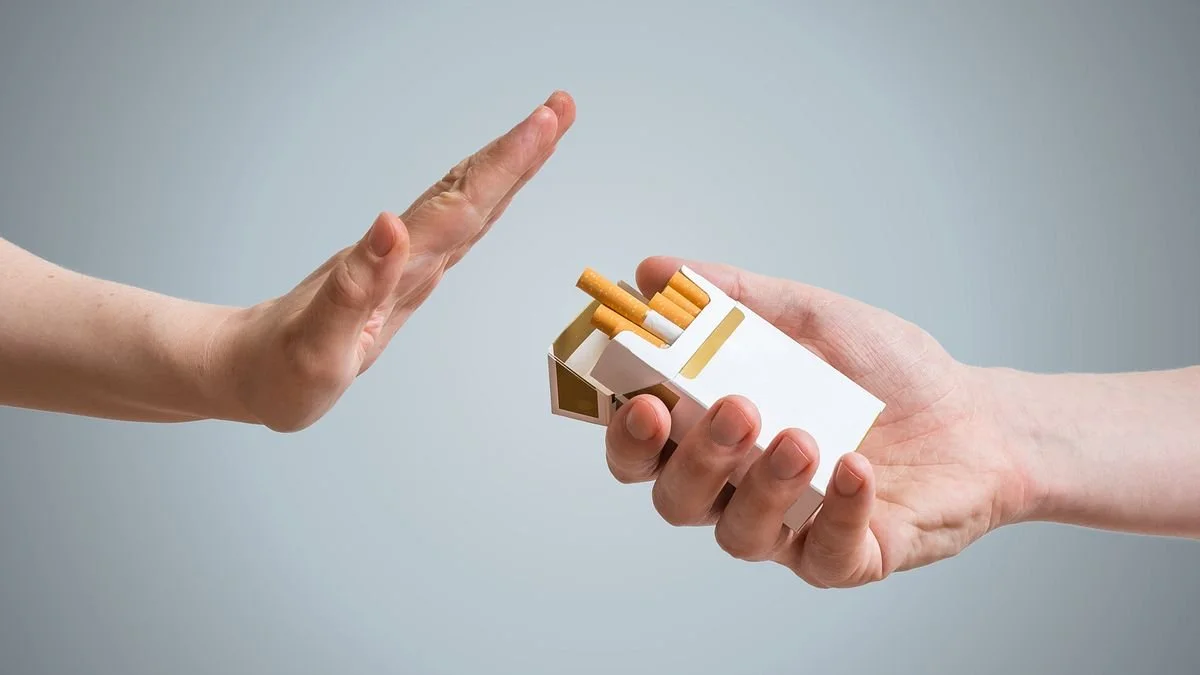Smoking Cessation Part 2
Vitalis Health clinician Tina Fegan was interviewed by Susan Hughes about smoking cessation. Tina has a background in medical practice including being a smoking cessation advisor for Cancer Focus for many years. In this series of blogs you will find transcriptions and a video of the engaging and fascinating interview. She talks about her own personal experience of stopping smoking 16 years ago and how this gave her particular empathy when supporting others who ere trying to stop smoking. She talked about the different aspects of smoking addiction including the cycle of the cigarette and the challenges and rewards of habit changing.
EMPATHETIC SUPPORT
So Tina you have had your own experience as a smoker and stopping smoking. Does that give you a particular empathy when working with people trying to stop smoking?
Yes I have been off cigarettes for 16 years now. I could tell people - this is how I got to where I am now, I was in the same position as you. I could relate to how they were feeling and really encourage them from a position of direct personal experience.
Sometimes the thought of stopping is harder than stopping itself. Most people smoke as a habit, most of them don’t even like smoking. It’s trying to break that cycle, of getting up every day and doing the same routine, picking up the packet of cigarettes, lighting up.
So it’s not just the nicotine addiction?
There’s 3 different types of addiction:
nicotine addiction
Psychological addiction
Emotional addiction
Many people miss that cigarette in their hand, they don’t know what to do with their hands. Or they miss that way to deal with stress. The cigarette companies fool us into thinking that it’s the cigarette that calms you down when in fact, if you think of it, when you’re asked to try and relax when you’re stressed or hyper anxious, the first thing you’re told to do is take a deep breath. And that’s what you do when you smoke. You take a deep breath in, you hold it and you let it out. So essentially it’s not the cigarette that’s calming you, it’s the deep breathing.
Smoking increases the heart rate so any stress you experience while you’re a smoker will be more severe.
On top of that, being a smoker means you’re constantly thinking about when you can get your next cigarette, which causes more stress. ‘When am I going to have my next break?’ On a long flight you’re stressed because you know you can’t smoke. So it’s a constant stress present there.
People think ‘I control my smoking’ but you don’t. The cigarettes control how many you smoke a day.
CHANGING THE HABIT
So when you supported people, did you create a programme?
We’re there to encourage and support stopping smoking. We’d meet and get background information about their smoking habits. I’d say ‘talk me through your day, what’s the first thing you do?’ Many will say: ‘I go downstairs, put the kettle on and have a cigarette and coffee’. You can nearly predict exactly when the cigarettes are coming. It’s all a strict routine.
I would say: mix things up, change the order of things. Get up and have your shower and get dressed, then have your coffee and smoke. The recognition of the habit being changed is empowering. The more you change your routine throughout the day then the more confident you will get regarding controlling your smoking.
Medical interventions are there to give you support with the nicotine cravings that you will get during the day. It is an addition to a drug. Nicotine is a drug. Stats have proven that it’s harder to come off smoking than heroin. But you’re 5 times more likely to come off with the smoking cessation support.
How long does it take to change a habit?
It takes about 12 weeks in all to change habits. That’s how long the programme is. People think that’s a long time but 12 weeks isn’t that long at all. The first weeks are when you are slowly changing your habits until a few weeks in you decide: ‘Yes I’m going to do this!’ So you choose a ‘quit date’, you choose an award for yourself, have a nice meal, book a haircut.
Twelve weeks is a suitable duration for dulling the receptors: you want those nicotine receptors in the brain to have dulled and not just pop up after a couple of days.
THE CYCLE OF THE CIGARETTE
The cycle of a cigarette is that you’ll smoke it, you’ll release those good feeling endorphins and that’s the pleasure that comes with the nicotine in the brain. And then what happens is you’ll get about 45 minutes of that and then that starts to die off, and then the craving kicks in. You light up again and you get your hit. And remember, your hit is never going to be as good as the very first hit. It fades.
The nicotine replacement feeds you that nicotine that the brain is craving throughout the day. You might get low points.
Check out the forthcoming blog for the rest of the interview with Tina Fagan about her experiences of smoking cessation.
If you would like tailored support to empower you to live a healthier life then book an appointment in our Belfast City Centre clinic. We are open all of the working week. Our clinic is bright and airy filled with plants and soft music to make you feel at ease. We receive patients from all over the world who are passing through Belfast, Howard Street, when staying at the Europa Hotel, Jurys Inn and the Fitzwilliam Hotel. We can give you last minute appointments, often same day or next day appointments to suit your busy schedule. Our doctors and clinicians are highly experienced and empathetic.




